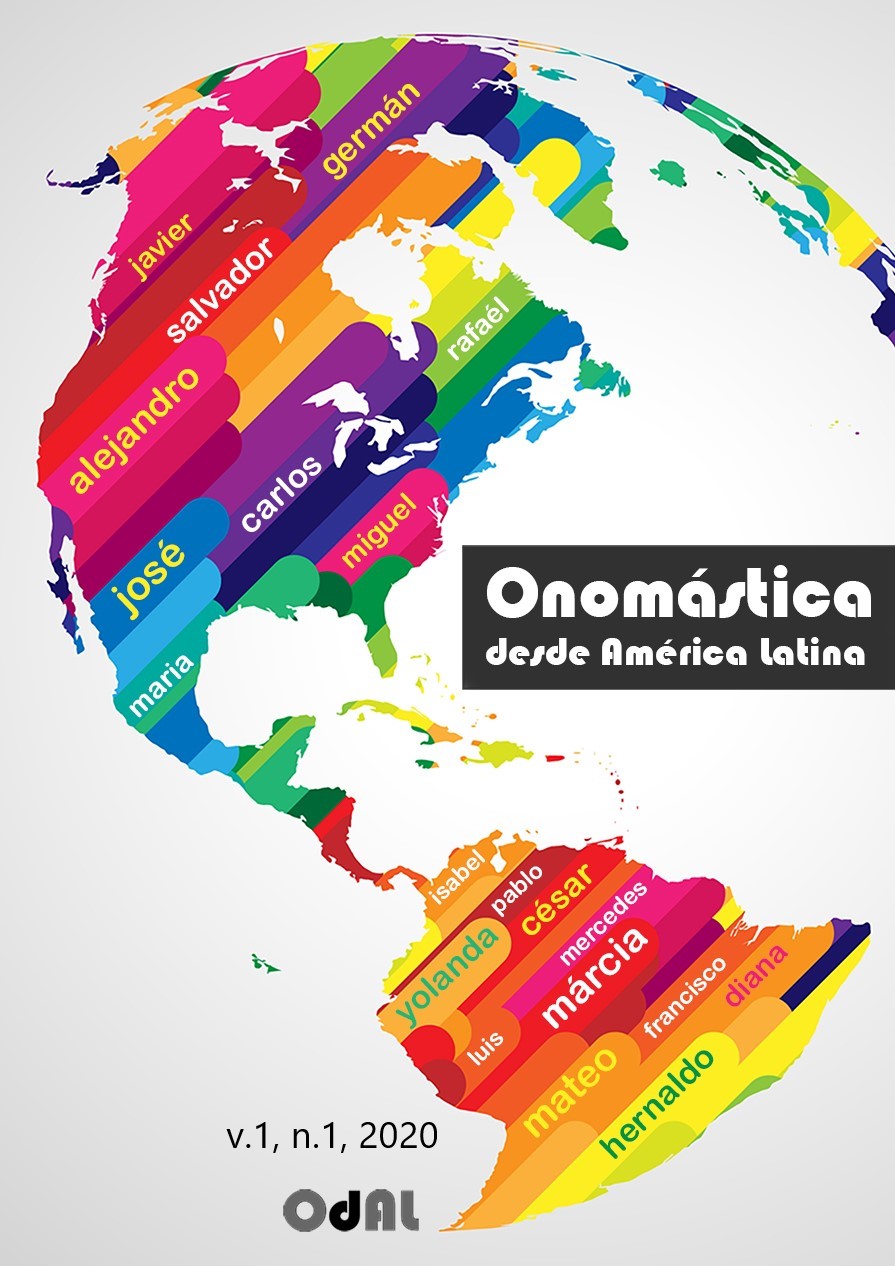First names in Germany as carriers of social information.How can social information be encoded in names?
DOI:
https://doi.org/10.48075/odal.v1i1.24161Keywords:
Socioanthropymy, perception of first names, onograms, Germany, 20th and 21st centuriesAbstract
In addition to the identification function carried by first names, first names are associated with a lot of information about the person and their social environment because the choice of name is guided by the life experiences of the parents, immersed in a social context. The choice is influenced by regional and temporal circumstances, family traditions, models of conduct, religion, membership of social groups and, today more than ever, by aesthetic aspects. Therefore, a first name always carries social information about gender, age or affiliation to a social group. Within a culture and within an era, this information is perceived in a similar way. 'I fear of God', Gottlieb 'love of God' are perceived as pietist names; Mandy, Peggy, Enrico as typical names of the German Democratic Republic (GDR); Adolf and Horst as names of the time of Nazism; Ali, Mohamed and Aishe as foreign names. What about the other features? "The Image of Names" research is presented on the perception of these names, the core of which is an online survey. The survey captures the individual effect of a series of names with respect to connotation pairs located in a semantic differential. The pairs of connotations relate to the meaning of the name itself, as well as to the attributions to the respective alleged bearers of the name. Among other things, it explores the perception of euphony, religiosity, appearance and social status. As early as the 1970s and 1980s, studies were in Germany indicating that certain character traits were also perceived in all areas. The corpus of names discussed here is higher (more than 2000 names) and large amounts of data are collected (150,000 questionnaires in November 2016). From the collected data, graphical impact profiles, so-called onograms,are calculated, showing whether and in which areas the names have connotations with general effect within the German-speaking world. The results can be compared with the statistical data of the first names.
Keywords: Socioanthropymy; perception of first names; onograms, Germany, 20th and 21st centuries.
References
Datenbank der Namenberatung der Universität Leipzig.
Hartmann T. (1984) Untersuchung der konnotativen Bedeutung von Personennamen. Ein theoretischer und empirischer Beitrag zur Psychoonomastik mit Hilfe eines konzeptspezifischen semantischen Differentials. Neumünster: Wachholz.
https://www.onomastik.com/Vornamen-Lexikon/
https://www.welt.de/News/article104680997/Kevin-Das-ist-kein-Name-sondern-eine-Diagnose.html. (diciembre 2017)
https://de.wikipedia.org/wiki/Kevin. (diciembre 2017)
http://de.uncyclopedia.wikia.com/wiki/Kevinismus (diciembre 2017).
Krien R. (1973) Namenphysiognomik: Untersuchungen zur sprachlichen Expressivität am Beispiel von Personennamen, Appellativen und Phonemen des Deutschen. Tübingen: Max Niemeyer Verlag.
Kube J. I. (2009) Vornamensforschung, Fragebogenuntersuchung bei Lehrerinnen und Lehrern, ob Vorurteile bezüglich spezifischer Vornamen von Grundschülern und davon abgeleitete erwartete spezifische Persönlichkeitsmerkmale vorliegen, Hochschulschrift zugl.: Oldenburg, Univ., Master-Arbeit.
Rudolph U., Böhm R. und Lummer M. (2007) Ein Vorname sagt mehr als 1.000 Worte. Zur sozialen Wahrnehmung von Vornamen. Zeitschrift für Sozialpsychologie Dezember 2006 38(1):17-31.
Utech U. (2011) Rufnamen und soziale Herkunft. Studien zur schichtenspezifischen Vornamenvergabe in Deutschland. Hildesheim – Zürich- NY: Georg Olms Verlag. Germanistische Linguistik Monographien, Band 25.
Downloads
Published
How to Cite
Issue
Section
License
Copyright (c) 2020 Revista Onomástica desde América Latina

This work is licensed under a Creative Commons Attribution-NonCommercial-ShareAlike 4.0 International License.
Creative Commons Copyright Notice
Open Access Journals Policy
Authors who publish in this journal agree to the following terms:
1. Authors retain the copyright and grant the journal the right of first publication, with the work simultaneously licensed under the Creative Commons Attribution License that allows the sharing of the work with recognition of authorship and initial publication in this journal.
2. Mandatory authorities to assume commitments, for non-exclusive distribution of the version of the work published in this journal (eg, publish in an institutional repository or as a book chapter), with recognition of authorship and initial publication in this journal.
3. Authors are allowed and encouraged to publish and distribute their work online (eg in institutional repositories or on the personal page) at any point before or during the editorial process, as this can generate productive changes as well as increase impact and citation of the published work (See The Effect of Open Access).
Creative Commons License
This work is licensed under a Creative Commons Attribution-NonCommercial-ShareAlike 4.0 International License, which allows sharing, copying, distributing, displaying, reproducing, a whole or parts as long as it has no commercial purpose and is cited by authors and a source.

